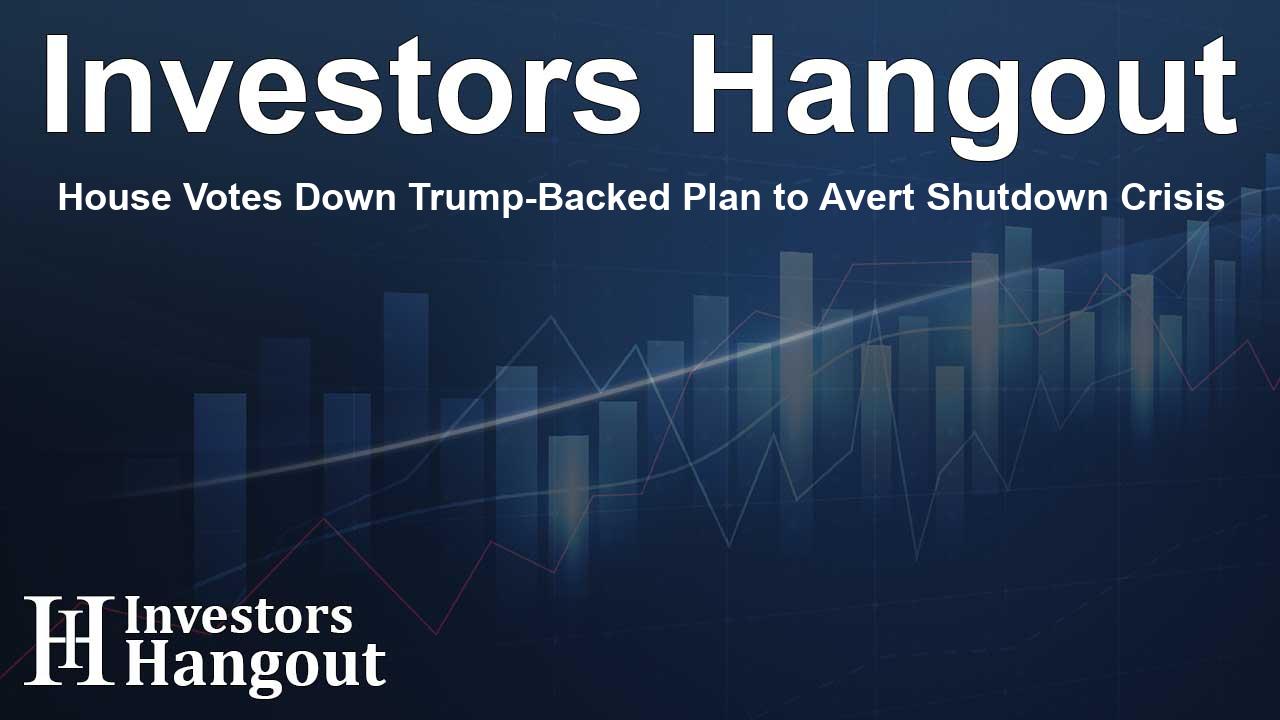House Votes Down Trump-Backed Plan to Avert Shutdown Crisis

House Rejects Plan to Prevent Government Shutdown
In a significant move, the House recently rejected a contingency plan aimed at averting a government shutdown and addressing the debt limit. Proposed by House Speaker Mike Johnson, this measure aimed to provide immediate financial stability but ultimately failed to gain the necessary support.
What Led to the Rejection?
Johnson's measure was swiftly introduced shortly before the crucial vote and did not achieve the two-thirds majority required for approval. The final tally was 174 in favor, 235 against, with one abstention. Opposition stemmed predominantly from Democrats, led by Minority Leader Hakeem Jeffries, along with a group of conservative Republicans.
Details of the Proposal
The proposed legislation included a suspension of the debt limit for two years, a request made by President-elect Donald Trump. In addition, it aimed to maintain government funding levels until mid-March while allocating around $100 billion for disaster relief and approximately $10 billion dedicated to economic assistance for farmers.
Impact of the Decision on Johnson
With this setback, the future course of action for Johnson appears shaky. Given the Republican opposition, any attempt to push the bill through standard processes that require a simple majority seems unlikely to succeed.
Consequences of Inaction
If Congress fails to approve any legislation by the deadline, which is set for 11:59 p.m. on a Friday, the government faces a shutdown. This situation presents a significant challenge for Johnson, who is working diligently to navigate the complexities of Republican leadership and prevent disruptions in government services.
Public Reaction to the Proposal
The response to the bill was notably vocal among legislators. Even with the support of President-elect Trump, many Republicans expressed their disagreement, and the Democrats demonstrated strong dissent, reportedly chanting "hell no" during an internal meeting after the proposal's introduction.
The Broader Landscape
This legislative development illustrates a larger rift within the Republican Party. Despite earlier bipartisan efforts to secure funding and prevent a shutdown, pressure from Trump and other prominent figures like Vivek Ramaswamy and Elon Musk led to a campaign against the bipartisan agreement, increasing the likelihood of a government shutdown.
Market Outlook Amid Uncertainty
The prospect of a government shutdown ahead of the holiday season raises concerns among investors. However, historical data indicates that markets tend to remain stable during shutdown events, with research suggesting that from 1976 onward, markets displayed resilience despite the temporary turbulence caused by political standoffs.
Current Political Dynamics
As the situation evolves, Mike Johnson's ability to navigate these political waters will be pivotal. The ongoing debates surrounding government funding reveal the complexities and challenges that lie ahead, particularly as lawmakers grapple with public sentiment and party dynamics.
Frequently Asked Questions
What was the main purpose of the proposed bill?
The proposed bill aimed to prevent a government shutdown and suspend the debt limit for two years while maintaining current funding levels.
Who opposed the bill?
The bill faced opposition primarily from Democrats and a faction of conservative Republicans, despite its endorsement from President-elect Trump.
What happens if Congress fails to act?
If Congress does not approve a measure by the deadline, the government risks entering a shutdown, which could disrupt services and impact the economy.
What is Mike Johnson's current role?
Mike Johnson serves as the House Speaker and is navigating challenges within the Republican Party regarding funding and leadership.
How have past government shutdowns affected markets?
Historically, markets have shown resilience during government shutdowns, often remaining stable despite initial volatility, according to research.
About Investors Hangout
Investors Hangout is a leading online stock forum for financial discussion and learning, offering a wide range of free tools and resources. It draws in traders of all levels, who exchange market knowledge, investigate trading tactics, and keep an eye on industry developments in real time. Featuring financial articles, stock message boards, quotes, charts, company profiles, and live news updates. Through cooperative learning and a wealth of informational resources, it helps users from novices creating their first portfolios to experts honing their techniques. Join Investors Hangout today: https://investorshangout.com/
Disclaimer: The content of this article is solely for general informational purposes only; it does not represent legal, financial, or investment advice. Investors Hangout does not offer financial advice; the author is not a licensed financial advisor. Consult a qualified advisor before making any financial or investment decisions based on this article. The author's interpretation of publicly available data shapes the opinions presented here; as a result, they should not be taken as advice to purchase, sell, or hold any securities mentioned or any other investments. The author does not guarantee the accuracy, completeness, or timeliness of any material, providing it "as is." Information and market conditions may change; past performance is not indicative of future outcomes. If any of the material offered here is inaccurate, please contact us for corrections.